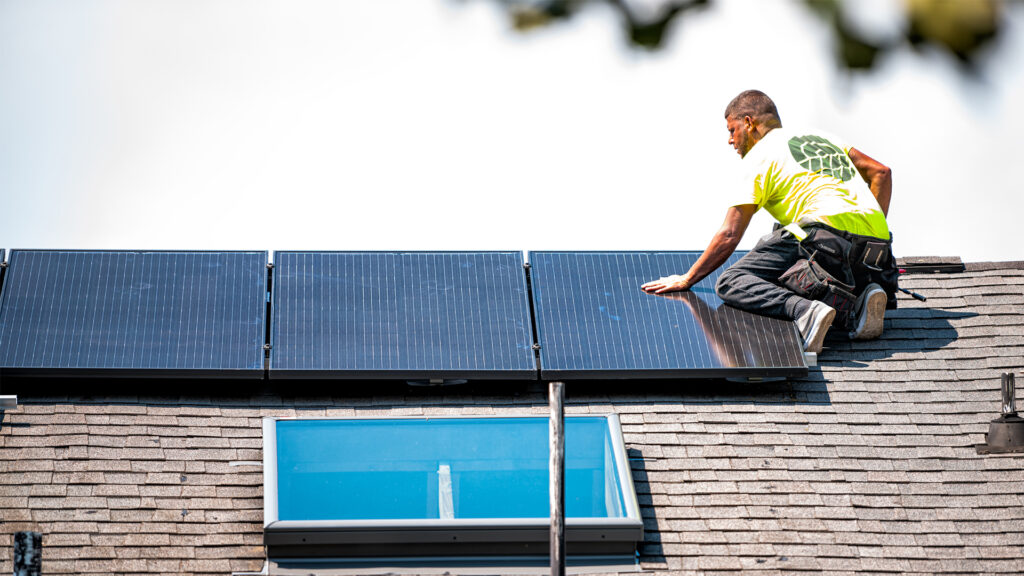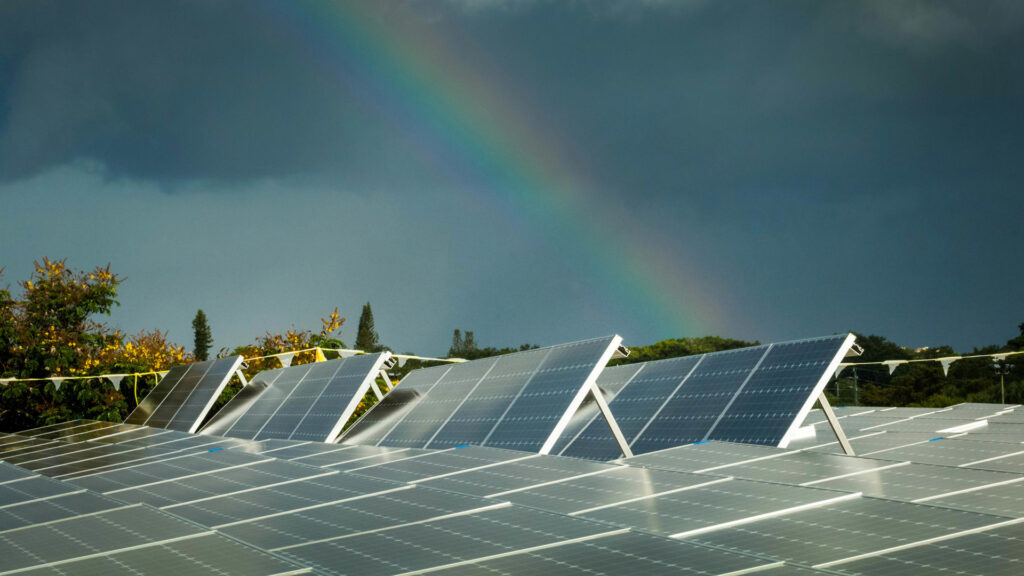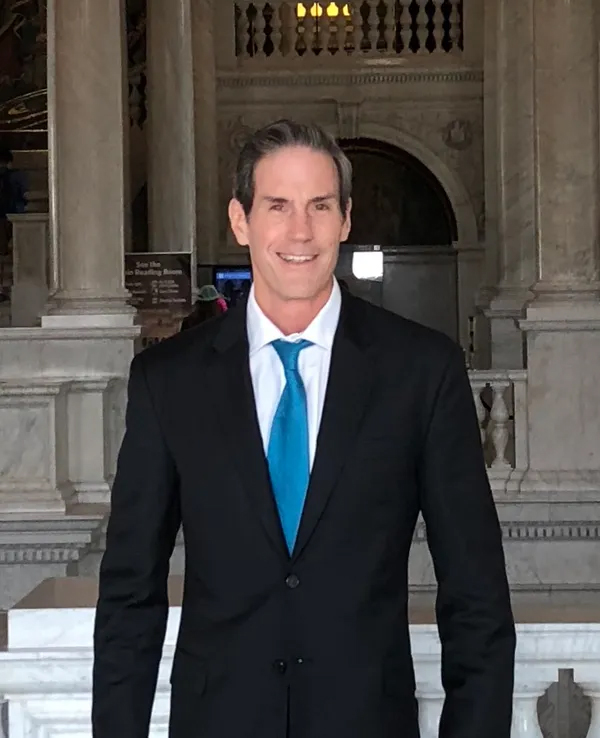By William C. McQuilkin
As Floridians, we have a real opportunity to take advantage of the Inflation Reduction Act to accelerate our transition to clean, renewable energy. We can do this while also providing much-needed jobs and growth industries for the working men and women of Florida. In the process, we can also make our communities more resilient to extreme weather events while improving our energy and national security.

The clean energy provisions of the Inflation Reduction Act are good for business, job creation and the local economy, as well as the environment. The legislation authorized $369 billion in funding to address climate change, but the really good news is that many of the provisions are for small businesses and manufacturers. For example, the measure includes a 30% tax credit for those who install solar power and additional credits for improving energy efficiency.
Utilities, too, can take advantage of the new law with similar investment and production tax credits to bring new economic opportunities to our communities. The industrial, manufacturing and service sectors of our state economy stand to benefit as well. RMI, an energy organization focused on innovation and sustainability, estimates that the Inflation Reduction Act will provide 85,000 jobs in Florida by 2030.
This should not be a partisan issue. From Irma to Ian, we have all faced these supercharged hurricanes together. We all live, work and play on this narrow peninsula that we call home. Democrat, Republican or independent, we need to work together to find a clear path forward amidst the rising waters, eroding beaches, powerful hurricanes and extreme heat.
This is the challenge of our time. We need to support mitigation measures to combat future climate change and we need to adapt to the effects of climate change that we are experiencing now.
With family in Southwest Florida where Hurricane Ian caused such devastation and billions of dollars of damage, I was really impressed by how well the solar-powered town of Babcock Ranch fared. The Southwest Florida community never lost power and sustained only minimal damage.
Dr. Jennifer Languell, president of Trifecta Construction and a sustainability engineer who helped design Babcock Ranch, talks not about politics, but about making informed decisions while building redundancies and durability into resiliency planning. She is building the kind of future that Florida needs.
Award-winning author and journalist Eugene Linden, in his excellent book “Fire and Flood,” points out that the cost of renewables can now compete with any other energy source. Solar has become the cheapest source of electricity in the world, according to the International Energy Agency. As the “Sunshine State,” Florida is ideally positioned to use this competitive advantage to increase solar power percentages in our energy generation portfolio.

We need strong state and municipal policies that incentivize the movement toward increasing renewable energy sources. Rooftop solar is a prime example for Florida. We should be encouraging individual homeowners who elect to convert to rooftop solar and look to find a way to make it more affordable for our citizens.
Unfortunately, the Florida Legislature put forward a bill last year that would have allowed the utilities to recoup lost revenues from individual homeowners who had installed solar. While Gov. Ron DeSantis vetoed the bill, actions such as these send the wrong message to our communities and citizens.
As Americans, we are always adapting to newer and better technologies. As we unleash the American entrepreneurial spirit and market-based forces on renewable energy, we can become the cost leader in solar and wind technology. This brings our manufacturing back home, protects our vulnerable supply chains and outmaneuvers our global competitors.
Interestingly, even with oil and gas embargoes due to the war in Ukraine, Europe was able to survive what was predicted to be a bleak winter with energy conservation measures and with a big uptick in renewables, particularly solar and wind. Apart from a providentially warm winter, there still was an impressive expansion of solar and wind energy generation and government policies to support it. This is instructive in terms of the energy and national security aspects of renewable energy.
Locally, as JEA works to update its Electrical Integrated Resource Plan, there is a good opportunity to take advantage of the Inflation Reduction Act and increase the percentage of renewable energy sources in their energy portfolio. I support the Renew Jacksonville Campaign (RenewJax), a local coalition calling for JEA to commit to 30% renewable energy sources by 2030.
It also asks that the city of Jacksonville pass resolutions committing the city to use renewable energy for all municipal operations by 2035. These appear to be achievable goals with the best interest of the local community in mind.
We need to work hard to ensure our state and local officials fully understand the Inflation Reduction Act. A lot of the funding has not been distributed yet and much will depend on how states and municipalities apply for these funds. Aside from the attractive tax credits, the potential benefits can extend over a long period of time, with a 10-year qualification window plus a 10-year credit window on top of this.
There is also the real possibility of a multiplier effect, where public investments incentivized by the new law can trigger private investments.

I see a lot of corporations investing in the southern U.S. with electric battery factories and electric vehicle charging manufacturing facilities, etc. Let’s create a favorable business ecosystem that brings these clean energy industries and jobs to the Sunshine State for the working people of Florida.
For Jacksonville, I can think of no greater location for a business to set up shop. There’s elbow room and a supportive, hard-working local community.
We have a great opportunity, should we seize it, to capitalize on the Inflation Reduction Act. It will bring jobs and opportunities back to our local communities and accelerate our transition to renewable energy. I also think we have reached a point where more of us realize that the path that we are on is not sustainable.
A transition to clean, renewable energy is the best thing we can do for our planet, for our country, for our community and for our children’s future.
William C. McQuilkin is a retired U.S. Navy rear admiral and a longtime resident of the First Coast. This opinion piece was originally published by the Florida Times-Union, which is a media partner of The Invading Sea.
If you are interested in submitting an opinion piece to The Invading Sea, email Editor Nathan Crabbe at ncrabbe@fau.edu.



